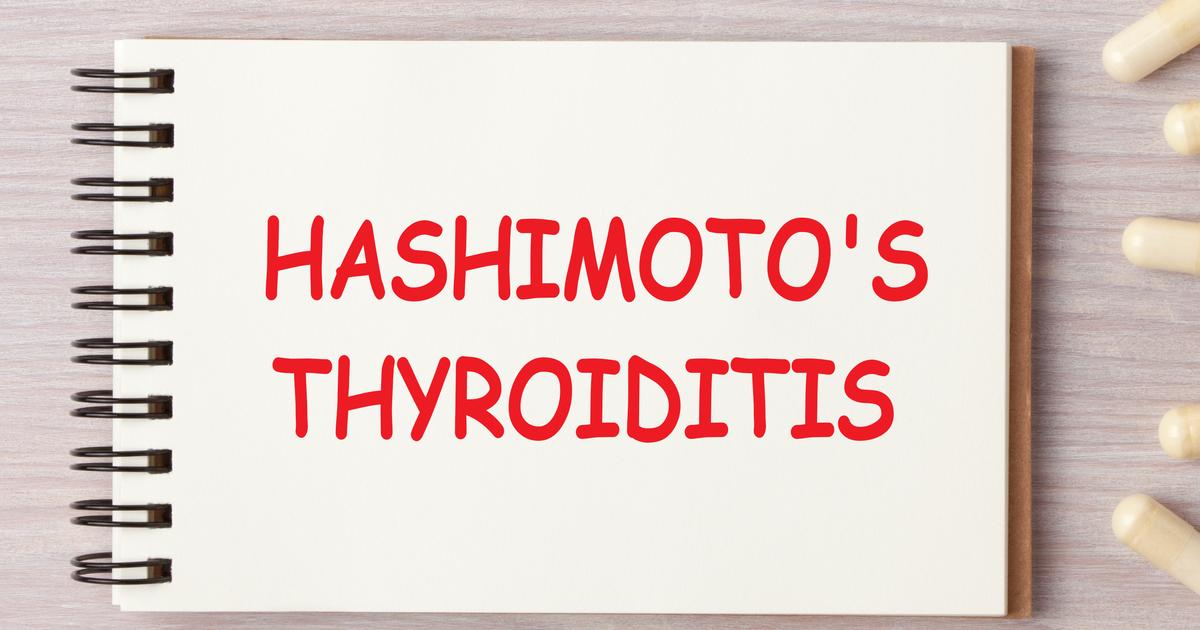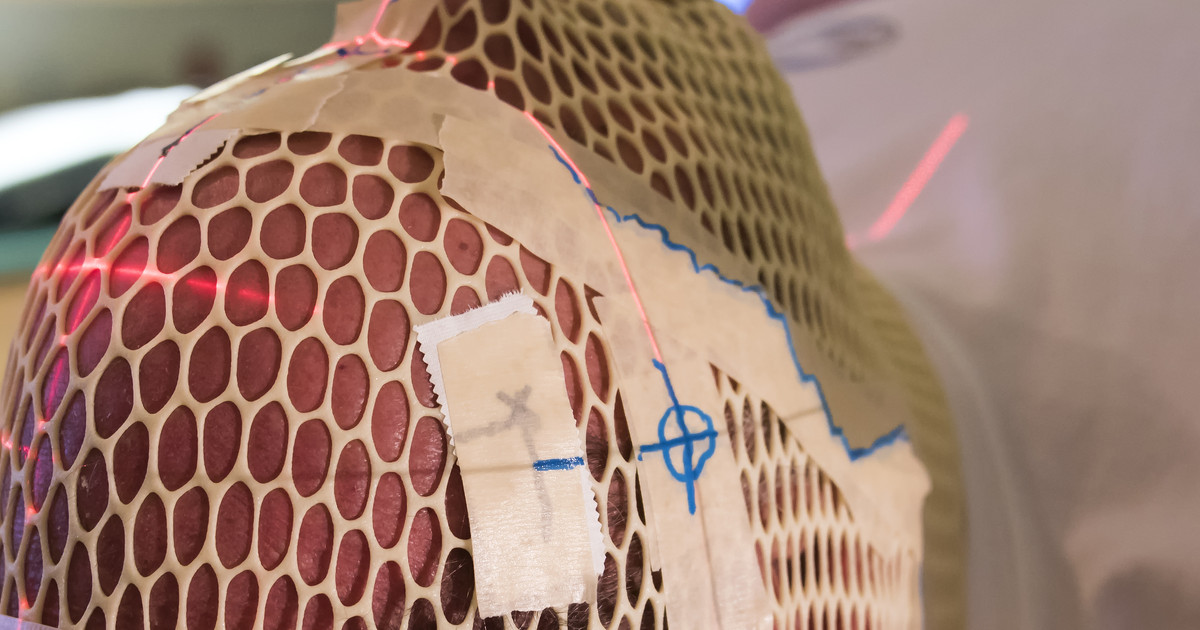What Are The Types Of Thyroiditis?
Thyroiditis describes several conditions that cause inflammation that occurs in an individual's thyroid gland that alters its function or structure. The thyroid gland is responsible for producing thyroid hormones that manage energy, metabolism, temperature, and organ function. In most cases, thyroiditis is caused by an attack by the immune system on the thyroid gland. However, some cases may be caused by a viral or bacterial infection or may be induced by the use of certain drugs.
Symptoms of thyroiditis are similar to those that occur in hypothyroidism, including weight gain, dry skin, reduced exercise tolerance, fatigue, constipation, and depression. Other types of thyroiditis cause hormones to leak from the gland, placing excess amounts of thyroid hormone in the blood. Symptoms that occur in these forms include insomnia, fatigue, irritability, anxiety, palpitations, and weight loss.
Hashimoto's Thyroiditis

Hashimoto's thyroiditis is a type of thyroid inflammation that causes the hormone-producing function of the thyroid gland to become impaired. Hashimoto's thyroiditis is the most prevalent form of thyroiditis among the general population that causes hypothyroidism. It can affect men and children of any age, but is most prevalent among middle-aged women. Hashimoto's thyroiditis typically forms over several years and gradually causes damage to the patient's thyroid gland tissues.
Eventually, the thyroid gland is no longer able to produce enough of the hormones the body demands. It is at this point when symptoms of hypothyroidism will become apparent. Hashimoto's thyroiditis is autoimmune or caused by antibodies the patient's immune system has inappropriately produced. Individuals who leave their Hashimoto's thyroiditis untreated may experience complications, including goiter, heart problems, mental illness, myxedema, and birth defects.
Acute Thyroiditis

Acute thyroiditis is a type of thyroiditis caused by a painful and aggressive infection that occurs in the thyroid gland. Acute infectious thyroiditis is a rare form of thyroiditis that may affect individuals of any age, but is more prevalent among children. The thyroid gland is well protected within the body from pathogens, which is why this form of thyroid inflammation is rare. An individual affected by this form of thyroiditis will experience a sudden onset of tenderness and pain in one side of their neck, fever, chills, neck area enlargement, a movable lump in the neck, pain when swallowing, and swollen lymph nodes.
Thyroid hormone levels in acute thyroiditis patients tend to stay stable, but some cases may produce hyperthyroidism or hypothyroidism. An individual affected by acute thyroiditis can develop an abscess that can be challenging to treat through the use of systemic antibiotics. Long-term thyroid gland dysfunction is a rare complication that may also occur in some patients.
De Quervain's Thyroiditis

De Quervain's thyroiditis occurs when a virus or bacteria causes the thyroid gland to become damaged and inflamed. Gram-positive bacteria, adenovirus, coxsackievirus, Epstein Barr virus, echovirus, influenza virus, mumps, and enterovirus are known to produce this type of thyroiditis. In this form of thyroiditis, the patient's thyroid gland enlarges rapidly and becomes increasingly painful. At first, the damage done to the thyroid tissues allows for large quantities of hormones to leak into the blood, producing conditions of hyperthyroidism.
However, this form of thyroiditis produces conditions of hypothyroidism shortly after the spike in blood thyroid hormone levels. This malfunction occurs because the damaged thyroid tissues cannot perform their function of iodine uptake, which is a compound required for the gland to produce thyroid hormones. Most cases of de Quervain's thyroiditis resolve successfully if the patient has had proper treatment. However, some patients may remain in a persistent state of hypothyroidism for a long duration after the thyroid inflammation has been resolved.
Silent Thyroiditis

Silent thyroiditis is a type of thyroiditis that occurs when a patient's immune system launches an attack on the cells that make up their thyroid gland, causing it to become damaged. Silent thyroiditis blends characteristics of Hashimoto's thyroiditis and de Quervain's thyroiditis. Labs in individuals affected by silent thyroiditis tend to show raised levels of thyroid hormones in the blood but lower levels of iodine uptake. This form of thyroiditis is deemed to be silent because thyroid pain is a rare occurrence.
The course of silent thyroiditis is similar to that of de Quervain's thyroiditis because it produces conditions of hyperthyroidism in a patient's body followed by hypothyroidism conditions. Silent thyroiditis is most prevalent among women who have just given birth. Certain types of medications have also been implicated as the cause for silent thyroiditis, such as chemotherapy, interferon, and amiodarone. The period of hyperthyroidism that occurs in silent thyroiditis typically lasts for up to three months, and the hypothyroidism that follows it can take even longer to resolve.
Radiation-Induced Thyroiditis

Radiation-induced thyroiditis is a form of thyroiditis caused by previous treatment with radiation therapy or radioactive iodine. Individuals treated with radioiodine therapy for hypothyroidism can develop radiation-induced thyroiditis as an adverse side effect. Lymphoma patients treated with the use of neck and head radiation therapy are also at risk for developing radiation-induced thyroiditis. Symptoms of radiation-induced thyroiditis typically manifest between one and two weeks following the patient's radiation therapy or reactive iodine treatment.
Much like other forms of thyroiditis, damage to thyroid tissue causes the patient to feel pain and tenderness in the neck. Symptoms of hyperthyroidism may manifest as the thyroid hormones are released into the bloodstream as a result of thyroid tissue damage. Radiation-induced thyroiditis usually resolves with the proper treatment in a patient within six to eighteen weeks.
Postpartum Thyroiditis

Postpartum thyroiditis occurs uncommonly in women who have recently given birth. The thyroid becomes inflamed at some point within a year after pregnancy. Most of the time, the condition can last anywhere from a few weeks to multiple months. However, it can also be very difficult to diagnose. Many women don't realize there is anything wrong because they believe the fatigue and pain are caused by stress. Any depression or mood irregularities caused by the inflammation might be mistakenly diagnosed as postpartum depression. Since postpartum depression is a much more common phenomenon than thyroiditis, many doctors don't even look for it.
The majority of women who develop this condition recover, and the thyroid returns to normal function in around twelve to eighteen months after the symptoms start. However, some women experience permanent complications due to damage to the thyroid gland. Postpartum thyroiditis presents in two phases. The first has similar symptoms to an overactive thyroid, including increased metabolism and weight loss. The second has similar symptoms to an underactive thyroid, including weight gain and depression.
Drug-Induced Thyroiditis

Drug-induced thyroiditis is one of the rarest forms of thyroiditis, as it's a very unusual cause. The underlying cause of thyroiditis is usually related to a different complication rather than a medication side effect. However, some individuals have been documented as developing thyroiditis in response to medications that include cytokines, lithium, interferons, and amiodarone. It can be hard to pinpoint the issue and cause since these problems only arise in a small number of patients. Some doctors might not have even heard of these medications causing thyroid issues.
Cytokines are responsible for helping the immune system cells communicate with the body. They cause inflammatory responses in the body, which may be why they're linked to thyroiditis. Lithium is a medication used to treat bipolar disorder and sometimes used as an antipsychotic. It has well-documented effects at managing manic episodes and reducing erratic electrical activity in the brain, but it has also been linked to the development of thyroiditis in some patients.
